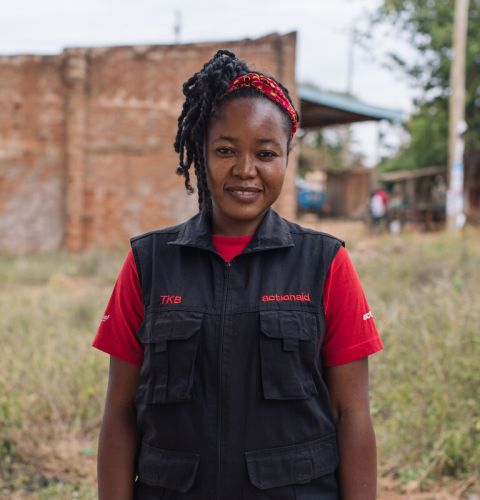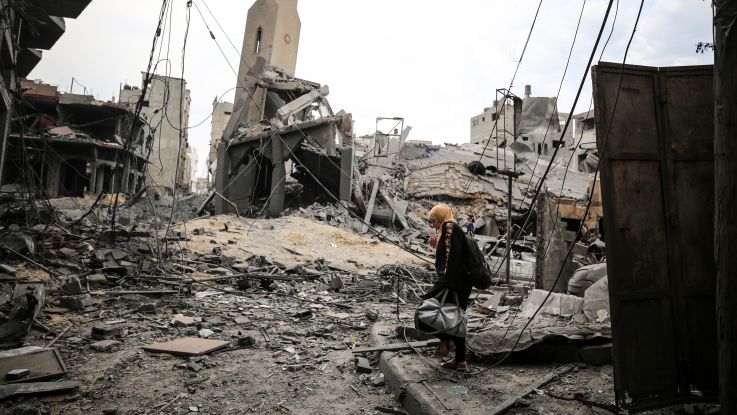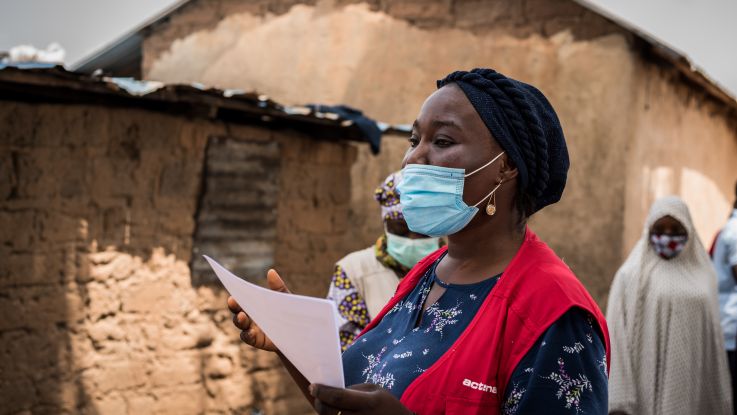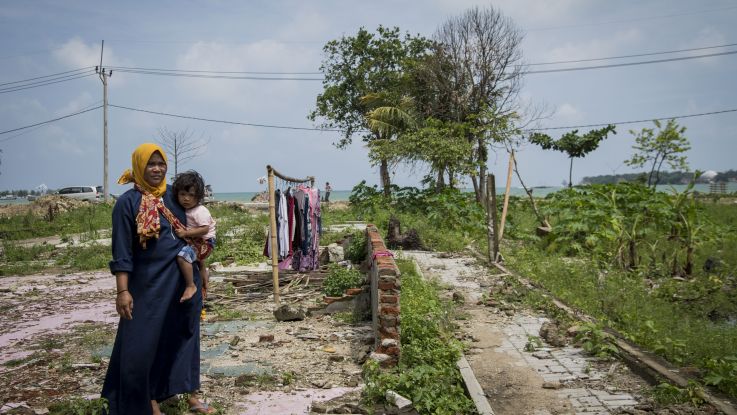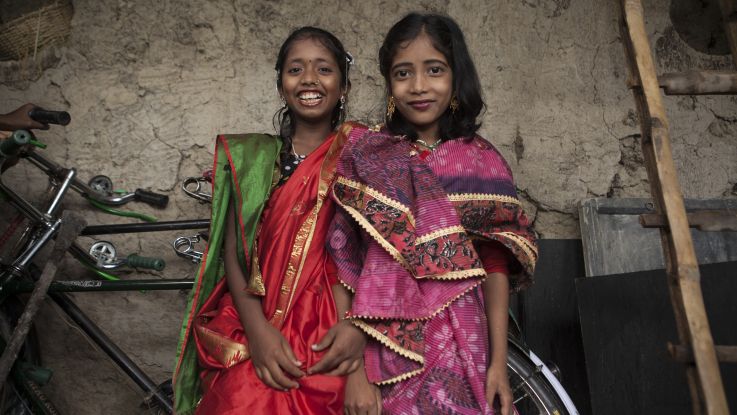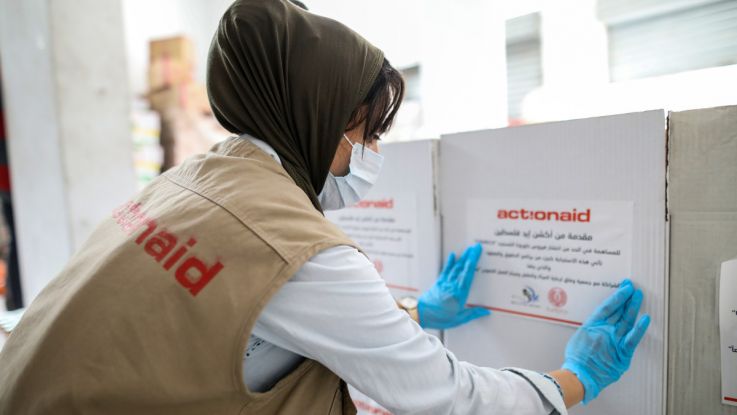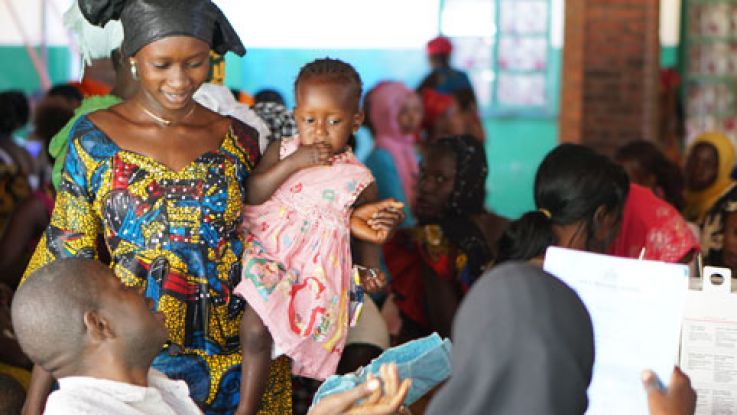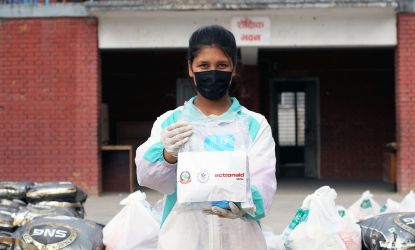
In Nepal, our women-led response to the Covid-19 pandemic has supported thousands of people.
Sabin Shrestha/ActionAid
Supporting women's leadership in emergencies
In humanitarian crises, ActionAid does things differently. We work to promote women's leadership, ensuring women are empowered to make decisions about the needs of their community.
We know that women bring vital skills, resources and experience to humanitarian response. And when crises happen, they are often the first responders, playing critical roles in the survival of families and communities.
During the Coronavirus pandemic, ActionAid has reached over 25 million people with our life-saving support.
We have put into action our women-led, localised response to the pandemic: promoting women's leadership, ensuring women are empowered to make decisions about the needs of their community, and amplifying the voices and representation of women in humanitarian decision-making spaces.
Page updated 15 October 2024
